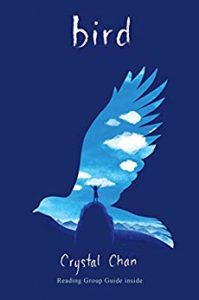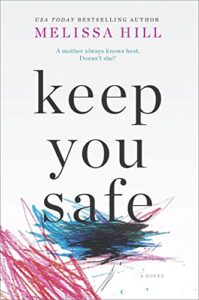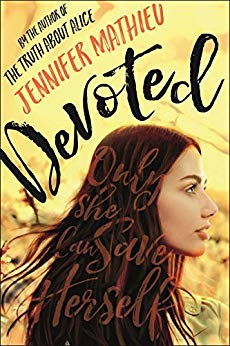My reading habits have evolved a lot over the years. In today’s post, I’m going to start with my earliest memories and share some stories about how my interests and habits have changed over time.
Most of these genres are still things I like to read at least occasionally. With that being said, I do not read the older ones as often as I once did.
Nursery Rhymes and Fairy Tales
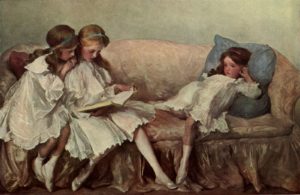
“A Fairy Tale” by J. H. F. Bacon
The first genres I ever fell in love with were nursery rhymes and fairy tales.
My uncle had a book of fairy tales that he left behind when he went off to college. I read that collection every time I visited my grandmother’s house, and it made me yearn for more stories about dragons, royalty, and people who were rewarded for the good things they did when they thought no one was paying attention.
The tales in my uncle’s collection were the sorts of things you’d see in a Disney movie. They were missing the dark endings that they’d often originally had.
A few years later, I began stumbling across fairy tales that didn’t always end happily ever after. For example, the original version of “The Little Mermaid” ended with the main character’s death instead of her wedding.
I did go back to preferring the more cheerful spins on these stories after a while, but I appreciated having those glimpses into what had happened to them before they were cleaned up for modern audiences.
30 Books in a Month
 As I’ve mentioned here before, I was homeschooled for the first several years of my education. One of the best parts of that experience was being able to read after my lessons were finished. There were times when Wyoming was far too snowy and cold of a place for a child to be wandering around outside in, so I read the entire afternoon and evening away on some of those wintry days.
As I’ve mentioned here before, I was homeschooled for the first several years of my education. One of the best parts of that experience was being able to read after my lessons were finished. There were times when Wyoming was far too snowy and cold of a place for a child to be wandering around outside in, so I read the entire afternoon and evening away on some of those wintry days.
All of this reading time had an interesting effect on me once I started public school and people who weren’t my parents or siblings began noticing my habits.
My fourth grade teacher once gave us an assignment to read three books a month. We were supposed to turn in little slips of paper with the title and author of what we read to her so she could keep track of them for us.
Reader, I didn’t finish three books that month. I read thirty of them.
Those three slips of paper we’d been given were almost immediately replaced by notes from my mother listing everything else I’d read after I fulfilled the original requirements.
When our teacher announced the number of books each student had read that month a few weeks later, most of my classmates were in the single digits. It was pretty funny to see how they gasped when they realized I’d quietly blown everyone out of the water.
A Passion for Poetry
 I no longer remember which genres I read during that thirty-book month, but I do remember the genre I became obsessed with shortly after that: poetry.
I no longer remember which genres I read during that thirty-book month, but I do remember the genre I became obsessed with shortly after that: poetry.
My fifth grade teacher did a unit on the many different types of poems out there, and I took to this topic immediately. A lot of the stuff she had us read reminded me of the nursery rhymes I’d loved a few years earlier.
Shel Silverstein was the first poet I loved, but I quickly moved on to poets who wrote for adult audiences like Emily Dickinson and Langston Hughes.
The thought of compressing what could be an entire story into a few short lines impressed me. I was always excited to find poets who could create strong imagery of what they were describing to the audience while using as few words as possible.
There was about a decade there when poetry was regularly part of what I read for fun. For a long period of time after that, I still returned to it regularly when I needed a break from other genres.
I’m slowly losing interest in this genre, and that makes me a little sad. I wish I could find the same thrill in it I did twenty years ago.
Science Fiction and Fantasy

“Martians vs. Thunder Child” by Henrique Alvim Corrêa.
My interest in the science fiction and fantasy genres has always been intertwined with the other things I’ve read. Long before I entered high school they became genres I returned to over and over again.
While I do take breaks from science fiction and fantasy to recharge sometimes, those feelings have remained constant to this day. No other genre has managed to keep me coming back for more for as long or as consistently as these two have.
There is something so interesting about taking a modern trend and extrapolating it to some distant future where robots really do run the world or when climate change has altered our planet so much that future generations can no longer imagine what life was like in a cooler, more stable climate.
I’ve come to prefer hopeful speculative fiction over the darker, apocalyptic stuff, but I think I’ll continue reading some sort of sci-fi or fantasy for many years to come.
Leaning Towards Nonfiction
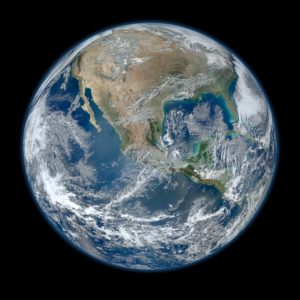 Over the last decade or so, I’ve found myself gradually becoming more interested in nonfiction than I ever was before. My favourite high school English teacher used to talk about how much she enjoyed reading about things that really happened.
Over the last decade or so, I’ve found myself gradually becoming more interested in nonfiction than I ever was before. My favourite high school English teacher used to talk about how much she enjoyed reading about things that really happened.
I didn’t understand why she’d say that at the time, but now I relish the opportunity to read books about history, astronomy, archeology, ecology, medicine, the biographies or autobiographies of people who have accomplished all sorts of things, and many other topics.
We live in a world that is filled with more information than any one person can digest in a lifetime. I accept the fact that I can’t learn everything, but I also want to be exposed to as much knowledge as possible in this lifetime.
How have your reading habits evolved over time? If anyone decides to borrow this topic and blog about it, I’ll edit this post to include a link to your response if you’re interested in that.
Edited on May 5 to add Bjørn Larssen’s response.
 Happy Canada Day!
Happy Canada Day!
 Last autumn I blogged about
Last autumn I blogged about  Progress: Accomplished.
Progress: Accomplished. Progress: Accomplished and still ongoing.
Progress: Accomplished and still ongoing. Progress: Ongoing but looking good.
Progress: Ongoing but looking good.
 As I’ve mentioned here before, I was homeschooled for the first several years of my education. One of the best parts of that experience was being able to read after my lessons were finished. There were times when Wyoming was far too snowy and cold of a place for a child to be wandering around outside in, so I read the entire afternoon and evening away on some of those wintry days.
As I’ve mentioned here before, I was homeschooled for the first several years of my education. One of the best parts of that experience was being able to read after my lessons were finished. There were times when Wyoming was far too snowy and cold of a place for a child to be wandering around outside in, so I read the entire afternoon and evening away on some of those wintry days. I no longer remember which genres I read during that thirty-book month, but I do remember the genre I became obsessed with shortly after that: poetry.
I no longer remember which genres I read during that thirty-book month, but I do remember the genre I became obsessed with shortly after that: poetry.
 Over the last decade or so, I’ve found myself gradually becoming more interested in nonfiction than I ever was before. My favourite high school English teacher used to talk about how much she enjoyed reading about things that really happened.
Over the last decade or so, I’ve found myself gradually becoming more interested in nonfiction than I ever was before. My favourite high school English teacher used to talk about how much she enjoyed reading about things that really happened.

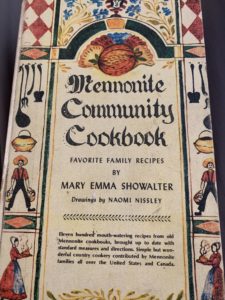 Both of my parents grew up in the Mennonite community and have the same general ethnic origins: German and French.
Both of my parents grew up in the Mennonite community and have the same general ethnic origins: German and French.


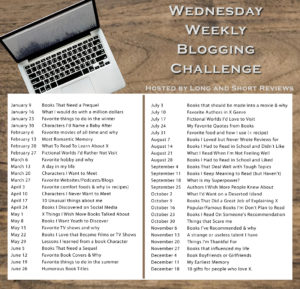
 Congratulations on being chosen by a muse! With a little forethought, the relationship you’ve begun with your source of inspiration will provide comfort and fresh ideas for your creative endeavours for the rest of your life.
Congratulations on being chosen by a muse! With a little forethought, the relationship you’ve begun with your source of inspiration will provide comfort and fresh ideas for your creative endeavours for the rest of your life. The most important thing you can do for your muse is to feed it a varied diet. Just like a parent wouldn’t allow their child to eat nothing but candy and a pet owner wouldn’t feed Fido fistfuls treats for every meal of the day, your muse needs to be looked after in a similar way.
The most important thing you can do for your muse is to feed it a varied diet. Just like a parent wouldn’t allow their child to eat nothing but candy and a pet owner wouldn’t feed Fido fistfuls treats for every meal of the day, your muse needs to be looked after in a similar way. I used to carry around a trusty little notebook and write down all sorts of slices of life in it for future inspiration. Sometimes it was a memorable quote from a book and on other days it might have been a funny throwaway comment a stranger made on the bus.
I used to carry around a trusty little notebook and write down all sorts of slices of life in it for future inspiration. Sometimes it was a memorable quote from a book and on other days it might have been a funny throwaway comment a stranger made on the bus. The important thing is to keep your consumption useful and to balance it with things that refill your creative tank.
The important thing is to keep your consumption useful and to balance it with things that refill your creative tank. Happy spring to everyone in the northern hemisphere! I’m beyond relieved to see it finally arrive as far as the calendar goes. Here’s hoping Ontario will soon see lots of warm weather and the first little green shoots popping out of the soil as well.
Happy spring to everyone in the northern hemisphere! I’m beyond relieved to see it finally arrive as far as the calendar goes. Here’s hoping Ontario will soon see lots of warm weather and the first little green shoots popping out of the soil as well.
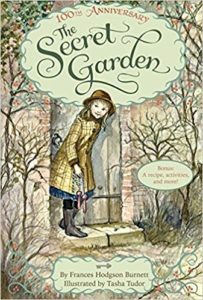 This is one of those childhood classics that I keep referencing over and over again in various posts.
This is one of those childhood classics that I keep referencing over and over again in various posts.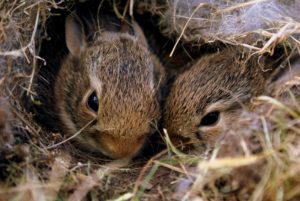 Don’t listen to anyone who tells you that picture books are only – or even mostly – for small children. There are plenty of picture books out there that are honestly even more meaningful for adult readers.
Don’t listen to anyone who tells you that picture books are only – or even mostly – for small children. There are plenty of picture books out there that are honestly even more meaningful for adult readers.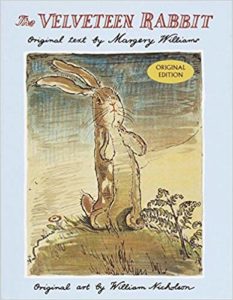 Confession: I’ve cried every single time I’ve reread this story.
Confession: I’ve cried every single time I’ve reread this story. You might think I’m joking about this, but I’m not. This is how the last couple of days have been for me.
You might think I’m joking about this, but I’m not. This is how the last couple of days have been for me. Lately, I’ve been thinking about climate change and how the expectations of what winter, or any other season, will be like in the average year are changing.
Lately, I’ve been thinking about climate change and how the expectations of what winter, or any other season, will be like in the average year are changing.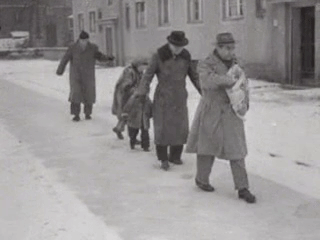
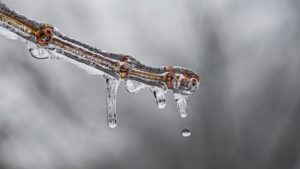 This is truly bizarre, and I wonder if it will become the new normal for future generations. Will they no longer need heavy winter jackets, gloves, hats, and scarves? How will they react to the thought of a winter that doesn’t thaw out again until March? I suspect they won’t understand that concept at all, except as an academic exercise when they read about what life was like before climate change.
This is truly bizarre, and I wonder if it will become the new normal for future generations. Will they no longer need heavy winter jackets, gloves, hats, and scarves? How will they react to the thought of a winter that doesn’t thaw out again until March? I suspect they won’t understand that concept at all, except as an academic exercise when they read about what life was like before climate change.